|
Once upon a time I set out to record some Drum Loops. Today I Revisited the concept. This time around I sought help I mean, lets be honest here, It'd be better to leave the drumming to the drummers. 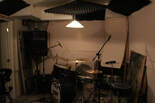 The Goal going in was to Sample the entire Drum kit. Bring your choice pieces, mic it, warm up. Record each drum in every possible way. 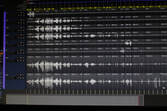 So we Warmed up, finished sampling the kit into this session here. Luckily, the setup was quick and efficient. Tracking went smoothly. we captured each Sample and then about a half-dozen loops. Next up is getting the loops Mixed, I won't get too deep into the weeds on the technical side. Light EQ mostly. Some Minor Edits. Later, the samples will be Exported as individual files and arranged by velocity. Don't complain, Seriously, Stop complainingPlease don't complain that your gear isn't good enough, or that you're not good enough. Seriously, Stop complaining. Recording is one part artform and one part physics. You as an artist should be learning to trust yourself. That's right, not every project is going to be perfect. Get over it, It doesn't actually matter as much as you might think. Here are 3 considerations to make your recording sound 'good'1: quality on the input This comes down to your performance, and your overall sound. It's like this, if you practice your song. You will get better results. It also ties into the quality of your gear. Is your guitar set up properly? does it stay in tune? do you need fresh strings? do you have clean pre-amps for your microphones? 2: Put things in balance When you have your tracks, lets say you took 3 guitar takes, put them together in a way that blends smoothly. Lets say you've added some soft-synths? and some midi drums. Do they blend? did you put on your engineering hat and use your mixing tricks to make space so that everything sounds good? 3 Finishing touches. Adding embelleshments, automation, Final adjustments for dynamics, keeping the song interesting from start to finish. how you get there doesn't matterHere at Gene Media, we don't care how you get there. We recognize that everyone is unique in their own approach, or as a smart author once said, "we each have our own game." The whole point is putting trust in yourself, trust in your ears, trust in your process, and trust your ability.
Practice vlog. I tend to not talk much. That's part of this whole experiment. Get over any nervousness around playing music on camera. At the end of the day, it's not so bad. In fact, It's a lot like those first couple times you go out to play your songs in public. It's a little nerve-wracking at first but eventually, you start to warm up to the feeling of putting yourself out there... Have courage to take the action and learn from your mistakes. Here's my Intentional vocal practice. Question. What did you notice about what and how I'm improvising? if you were practicing music in this way, what would you do differently? Comments here (or on youtube)
Thanks for being awesome. Hey everyone, Thought I'd share another video practice session of some original music, written with the help of some friends here at Gene Media Productions. These were songs created in collaboration with friends. Setlist 1- Check Engine (lyrics by Levente) Levente Is Creating some Videos too. Stay tuned because I'll definitely be sharing his music once it's ready 2- The Wind and the Whistle - (@the way out) 3- Weekend At Jerry's - (@the way out) The Way Out is a Canadian, Classic Rock / Folk Rock and domestic beer-inspired project with Ol'brother Paul. The band is on break, with no plans to reunite at this moment; however, there are two albums available for digital download (links below) 4- Today - (@Harley) Short and sweet Punk song originally written by Harley while we were teenagers in "A Band In America" ----- If you like this video content, Please show some love by hitting that like button or sharing it with someone who needs to hear it. If you Loved this video, and have the means to contribute to future projects, you can visit www.genemediacreativestudio.com/codygenemusic to find my full discography for 50% off. Would you like to work together? Gene Media is now accepting applications for independent songwriters who are looking to take their music to the next level, whether that's getting help with Your Recording and Audio Production, or getting some feedback on your launch-strategy for a more cohesive presentation for your music. Visit the website and Ask how We can help. Cheers!
Introduction to the subjective nature of music methodologyI've said it before and I'll say it again. Music is an artform, Audio is a science. The two joined together create the magic that is a great record. Certain things are subjective, others are concrete. There are principles behind audio production that can help you to get a better sound on your recording, but the application of these principles will almost never be a 'one size fits all' approach. project goals - the ideal soundSo your song is structured out. You've got your go-to tone. that's great. You've imagined your ideal sound and that's probably the hardest part. Now we get into the tricky bit... Laying it down in such a way that the end product matches your initial vision. I remember my first dozens of songs. I would set out with the intention to make a Punk song or a Dub song, but somehow it didn't turn out the way I planned it to. Why? was it lack of experience? Was it lack of the correct tools or my inability to use them? I may never know. Sometimes the unexpected can be a real treat, sometimes it's just a disappointment. a myriad of toolsIn our modern digital age, we've got a nearly unlimited variety of tools to choose from. For example, what kind of microphone is best for a male vocal? answer, It depends on the singer, his pitch, his Timbre (the tone of voice,) the positioning, and the room.
how do I get a thick-heavy tone from my guitar? it depends on a lot of things, what kind of pickups are in your guitar? what amplifier are you using? settings on a pedal-board? are you using a DI (direct signal?) are you prepared to re-amp your guitar later? do you have the ability to add thickening in the mix? The same applies to EQ settings. A lot of time, there will be a range that you can approximate where an instrument falls, assuming you're mixing a rock band. Is it the same for classical music? jazz? the answer is it depends. when should you listen in context? Do you solo out tracks and mix them by themselves? What does it mean to keep things in context? The most important tools are your ears and your mind. Use them, trust them. If it sounds good it sounds good. but remember the context. From your sound in the space it's in, to the interaction of frequencies in your mix. listening in context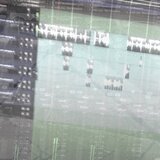 Reference mixes can help you understand how your track is sounding compared to other songs. If you're listening to a playlist, and one song is drastically quieter than the one before it, thats no good. Reference mixes can help you avoid that. using ducking. if you hear a displeasing sound in your guitar track, a useful trick (if it is supported by your hardware) is called ducking (or listening in place.) This is basically just turning down everything, and keeping the track that has your attention at the forefront. imagine it like a lens through which you can still seee what's happening in the rest of the song as you're doing surgery on that guitar track. the mix-engineer's skill-setTrust your ears If it feels right, it probably is. I've seen many an indie go way overboard with mixing each individual track to perfection, only to to turn off solo and have to do it again. They end up to their necks in audio problems they barely understand. striking a balance between tracks vs tracks, & tracks just sounding good on their own. Solo out that track and it sounds fine alone but in the mix it sounds wrong. What is actually happening and why? Which interaction of instruments/tracks is causing that? Use solo to find that. Remember that sounds interact with other sounds. Just because one track is a vocal and another is a guitar doesn't mean frequencies are not competing for space. The sound is combined and played back through your sound system, and if you're not mixing in headphones, they're interacting with your room too. why it mattersSaving time - repeated steps - do-overs So how to conclude this article, and mix it right. If you're having to solo out a track, tweak it to get it sounding perfect, and then start over again to get it sounding good in context, You're doing it twice. You don't have to. Don't worry, these skills are like learning a new instrument. they come with time and practice. Luckily we live in an age where people are sharing their years of skills and experience for free on the internet. Need some tips? Let me google that for you...
insert wall of text hereI guess the first question would be how do you want to capture your ideas? If you have a decent laptop or computer you can use a DAW with an audio interface. *Cubase/nuendo, protools, logic, studio one, reaper, are a few examples. For basic tracking they all do pretty much the same thing. The workflow and the price-point is the main consideration while you're just starting out. For Audio interfaces, there are quite a few out there. It depends on your budget. like, the Behringer U-phoria series is probably the cheapest, and the Apollo ones are on the top-end. I'd recommend going onto amazon to browse and read reviews if that's the way you want to go. Just remember, you usually get what you pay for, so if you can afford to spend the $$$, then get the best you can. Or you could use a built-in recorder that captures to SD card (like someone mentioned the zoom R16) I had one of those for years, they're mobile and useful, but the preamps aren't the greatest. but it gets the job done. other considerations, will be how many channels you need. will you want to use mics (if so do you have a nice quiet room?), or a direct-in signal? I'm guessing you could probably get by with a 2 channel (for most purposes) or an 8 channel if you need to track drums, or want to go all out with lots of mics. 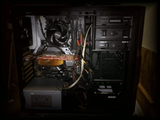 Sample rate and Bit Depth are another consideration. this will look like (sample rate 44,100 48,000 96,000) (bit depth 16, 24, or 32, bit) Just use the highest you can get away with. but the higher you go, the more cpu power you'll need, and the more storage space your sessions will take up 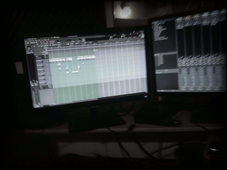 Gain staging - once you're setting up to record, set your input gain to the highest you can get without clipping. I'd recommend doing a google search for 'signal to noise ratios audio' or 'gain staging audio' to figure that part out. basically, you want the 'hottest signal you can get without clipping or introducing too much noise' As far as sending your tracks off for mixing. Your engineer will probably ask you to consolidate your tracks. which basically means you export your tracks individually, each beginning at 0:00. This allows for the engineer to easily align them in the new mix session. a quick and dirty guide to 'getting the bass right'My biggest piece of advice is to use what you have, trust your ears. To get really great at mixing takes time and practice. Focus on geting the best sound you can from the tools and knowledge you've got. Trust that as you do more and more, your skillset will improve, and so will your mixes Low End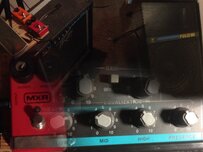 let's say you're looking for a deep-warm tone. It sounds great on a good sound-system, but it doesn't show up on small speakers. what do you do?What do you do is not a question that can be directly answered yet; that is, unless you already know what your options are, and in that case, you probably already have your problem solved. what are you trying to achieve?let's start here instead. Okay, so lets say your genre is indie rock. It's a song that's driven by the guitars and the vocals. 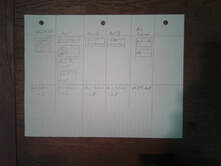 great, now which instruments live in the low-end. commonly this will be drums and bass (kick, toms, Bassline, the bottom of the guitar, and the deepest part of the vocal. The bass doesn't cut through? ask yourself which instrument and why? what is happening in the low-end?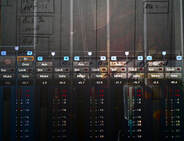 The kick drum sounds good, the guitar/vocal sounds fine. the bassline doesn't cut. It doesn't always need to be front and center, It can act as the glue to hold the song together. When you move away from your good sound-system to your laptop/earbuds/car stereo/mobile. it seems to disappear completely. how can you approach thisA few areas to consider.
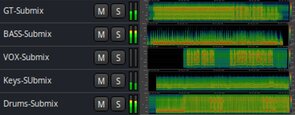 Imagine your low-end in 3 bands. you've got sub-frequencies, Low-frequencies, and precieved low-frequencies (low-mids and above) Check for trouble areas in the context of these three 'bands' EQ is your most powerful tool! try to find the frequency range you're looking for using your solo function to listen for which tracks might be competing for 'space', for example, the bass if it's most present at 80Hz, but the guitar is 'masking' the bass up between 160- 300Hz. You might also have low-frequency energy competing in tracks where it has no business being. here, a hi-pass filter would be your friend. For example, The bass is warm and present between 60-160hz, but adds nothing above that. because it's being covered up by another instrument, A small set of laptop/phone speakers may lack clarity at frequencies below (approximately) 200-300Hz. They have the most presence between 1-5kHz. if you can let the bass through within these ranges (again these numbers are guestimates, every mix is different) you can achieve a more consistant tone across sound-systems.
I sat down the other day with Singer/sowngwriter Doug Maxwell for some video. One of his Originals by the way, and an excellent story too. Here's how he describes it... "This song commemorates a 1962 road trip my mother, sister and I took. I was just turning 11 at the time and living in Florida. This point in time was the end of innocence, both in my life and in world affairs, as I have come to understand them. The vast glacier we hiked to in Glacier Natl. Park no longer exists, only one example of vast change. Many thanks to Gene Media for invaluable assistance." |
Gene Media ProductionsCody Gene: Record Producer Music Methodology & Creative Lifestyle
#
All
Archives
April 2024
|
Categories
|
AboutGene Media Creative Studio is the Production Facility of Indie-Rock producer and songwriter Cody Gene.
|

Gene Media Creative Studio is located in British Columbia, Canada and creative Cody's creative space. here he explores ideas, creative vision, and technical aspects of independent music production + artist development.
|
Contact |

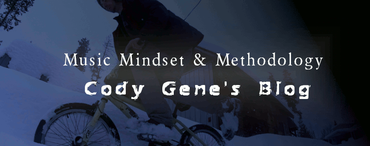
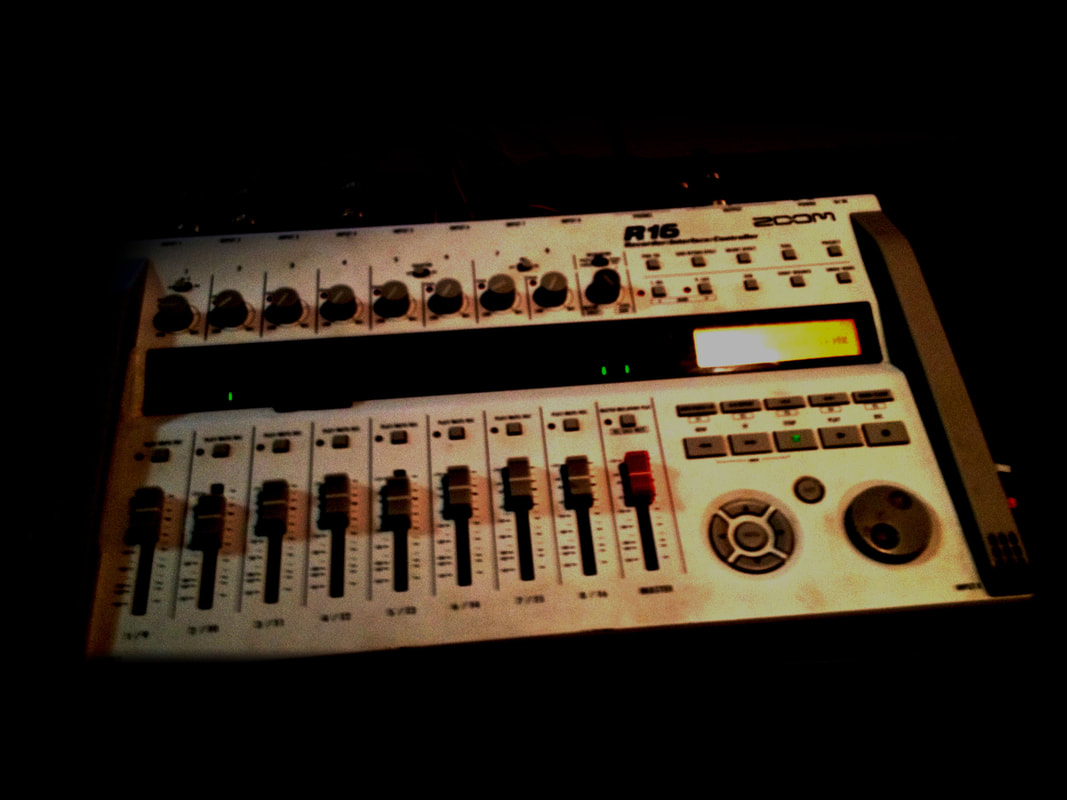
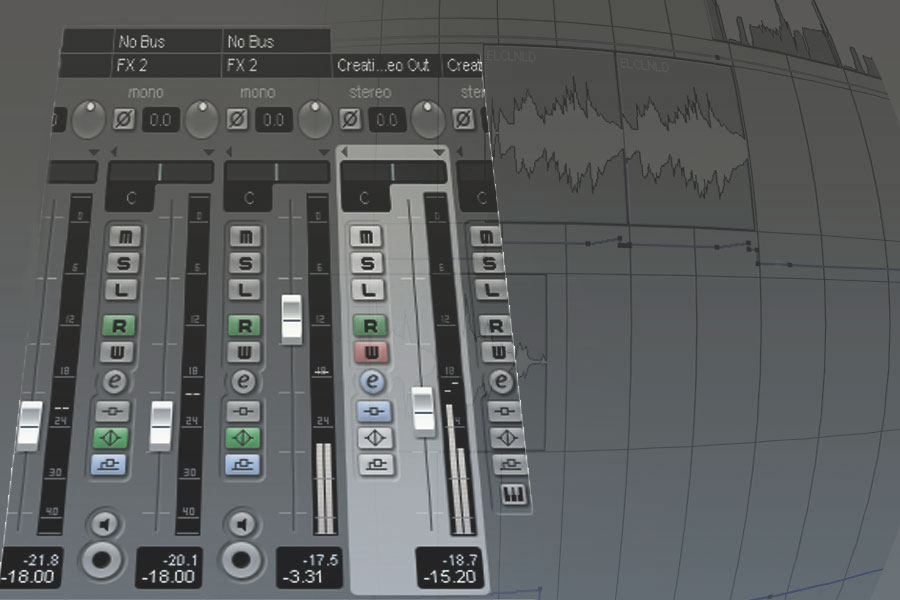
 RSS Feed
RSS Feed